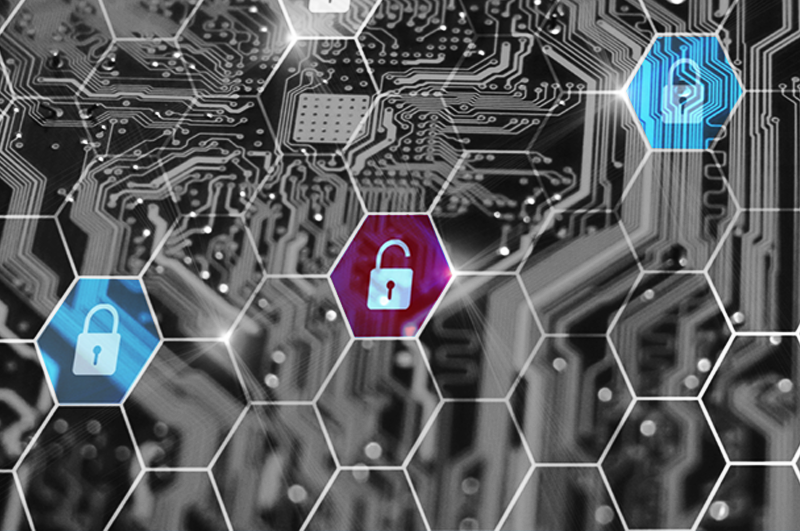Cyber Liability Insurance

With each passing day, technology becomes increasingly important for the operations and success of your business. The amount of information stored and transmitted digitally continues to rise and with it so does the risk for businesses. One stolen laptop or hacked account can compromise the personal information and identity of your customers. One careless social media post can reach hundreds of people in a matter of minutes, damaging your reputation and potentially putting you in legal jeopardy. What if you try to save costs by hiring a third-party cloud service provider to store the customer information for your small business and it gets hacked? Can your company pay the estimated thousands of dollars in investigation costs and afford the damage to your company’s good name? What if your online store uses a third-party platform to host its website and save customer information, and it falls victim to a cyber attack? Can your business withstand the lost revenue of having your site shut down for days or weeks while the third party resolves the issue? As our digital dependence grows, so does the need for cyber liability insurance.
What Does a Cyber Liability Insurance Plan Cover?
Cyber insurance coverage protects your business from cyber risks and is just as important as mitigating the hazards covered by your general liability insurance policy. Your cyber liability policy can cover cyber incidents and exposures such as:
Data breaches: Much of our personal information is stored and transferred online – names, addresses, social security numbers, medical history, credit card numbers, and all kinds of other personal and professional records. The virtual and physical computer systems that maintain that information are particularly vulnerable to hacks and data breaches. Expanding government regulation has placed increasing responsibility on companies to protect client and customer personal information. If there is a data breach, affected parties must be notified of it under law. You will be responsible for those costs as well potential costs for cyber security fixes, identity theft and credit monitoring protection for the affected consumers, and protection from possible legal action. Even companies that don’t transfer personal data electronically are at risk if they store it in electronic form. That data is still susceptible to theft in the event of unauthorized access by an employee or stolen hardware.
Intellectual property rights: The mere presence of your business online puts you at risk. Your company website, blog, and social media platforms open you up to dangers like libel, defamation, invasion of privacy, and copyright or trademark infringement among other liabilities.
Damages to a third-party system: This coverage would guard you against liability if one of your cyber systems causes damages to an outside party. For example, if an email sent from your server transmits a virus and crashes your customer’s system, you could be responsible. Similarly, if the software your company distributes fails and causes a loss for a third party, you could be held liable for the damages.
System failure: A natural disaster, fire, or malicious activity is a threat to your business property. If computer systems or other hardware are damaged or destroyed during it, you could lose valuable data or code in addition to the equipment itself. Even if the equipment is protected under your existing business liability coverage, the data or code lost in the event would not be.
Cyber extortion: Cybercriminals and hackers may hijack a website, network, and/or stored data, cutting you off from those channels and your customers. They may threaten to damage your data, release private information, or introduce a virus into your system, wreaking havoc on your business. This can all lead to lost revenue. They may demand a ransom before restoring your channels and systems. This insurance covers the cost associated with revenue loss, paying the hacker’s demands, and recovery after the losses.
Business interruption: Most companies rely heavily on technology for their daily operations and losing access to your data or your ability to transmit information would cripple your business. It could debilitate your ability to do your work, serve your customers, and make money to pay your employees and support your family. You may have to divert time and resources from other areas to fix the problem, causing even more losses. Cyber insurance coverage can help offset those costs.
Legal support: Any number of these hazards can put you at risk for a lawsuit and in need of legal counsel. Legal assistance is often costly, but cyber insurance covers costs to help you properly defend your company in legal matters.
Why Your Business Needs Cyber Liability Insurance
Earlier this year, one of the nation’s largest pipelines was forced to shut down after falling victim to a cyber attack. The pipeline, operated by Colonial Pipeline, supplies 45% of the east coast’s fuel supplies, transporting it along a 5,500-mile stretch from Texas to New York. The attack forced Colonial Pipeline to halt operations, creating largescale gas shortages. Cyber criminals reportedly stole 100 gigabytes of Colonial Pipeline’s data and allegedly threatened to leak some of it unless the company paid a $5 million ransom.
This incident was a wake-up call to businesses all over the country, especially those with aging IT structure and employees who are not knowledgeable in network security. A traditional business insurance policy protects against injury, damage, and physical losses, and do little, if anything, to insure against most cyber exposures. These exposures are immense, and they grow in number and strength exponentially as time passes. It is critical for businesses to properly manage the associated risks and protect themselves from the threat of cyber liability with a comprehensive insurance policy. Cyber liability insurance is designed to address the specific hazards associated with using modern technology that other insurance coverages don’t.
What Types of Cyber Liability Insurance Are There?
Many policies offer different types of cyber liability coverage – first-party and third-party.
First-party coverages pay out-of-pocket expenses that a company directly incurs from a breach or attack. This could include costs associated with legal defense, forensic investigations into a breach, public relations and crisis communications response, business interruption, bribes and extortion money, and customer notification and identify theft monitoring.
Third-party coverages would cover costs related to damages or settlements a business must pay during claims or lawsuits from injuries due to the action or inaction of a business. This could include fines from regulatory bodies and lawsuits regarding privacy or liability.
How Much Does Cyber Liability Insurance Cost?
The level of coverage your business needs depends on your exposure and should be tailored specifically to meet the needs of your company operations. The insurance cost varies based on your coverages. It is important to work with the right insurance company who will partner with you to identify your areas of risk and build a policy that fits your unique situation.
Your Local Cyber Security Insurance Agents
Data breaches, hacks, and other cyber attacks can be devastating to your business. Cyber liability insurance is an essential component to any responsible risk management program. With each new advance in technology comes a new exposure. As your business and risks grow, make sure your cyber liability coverage and insurance company can grow with it. Hanson & Ryan Inc. has been supporting businesses with their insurance needs since 1876, evolving over generations. We work with you to thoroughly understand your business, the work you do, and your cyber liability needs. Contact us today so our experts can help you make the right coverage decisions to protect your operations from the threat of cyber liability.




